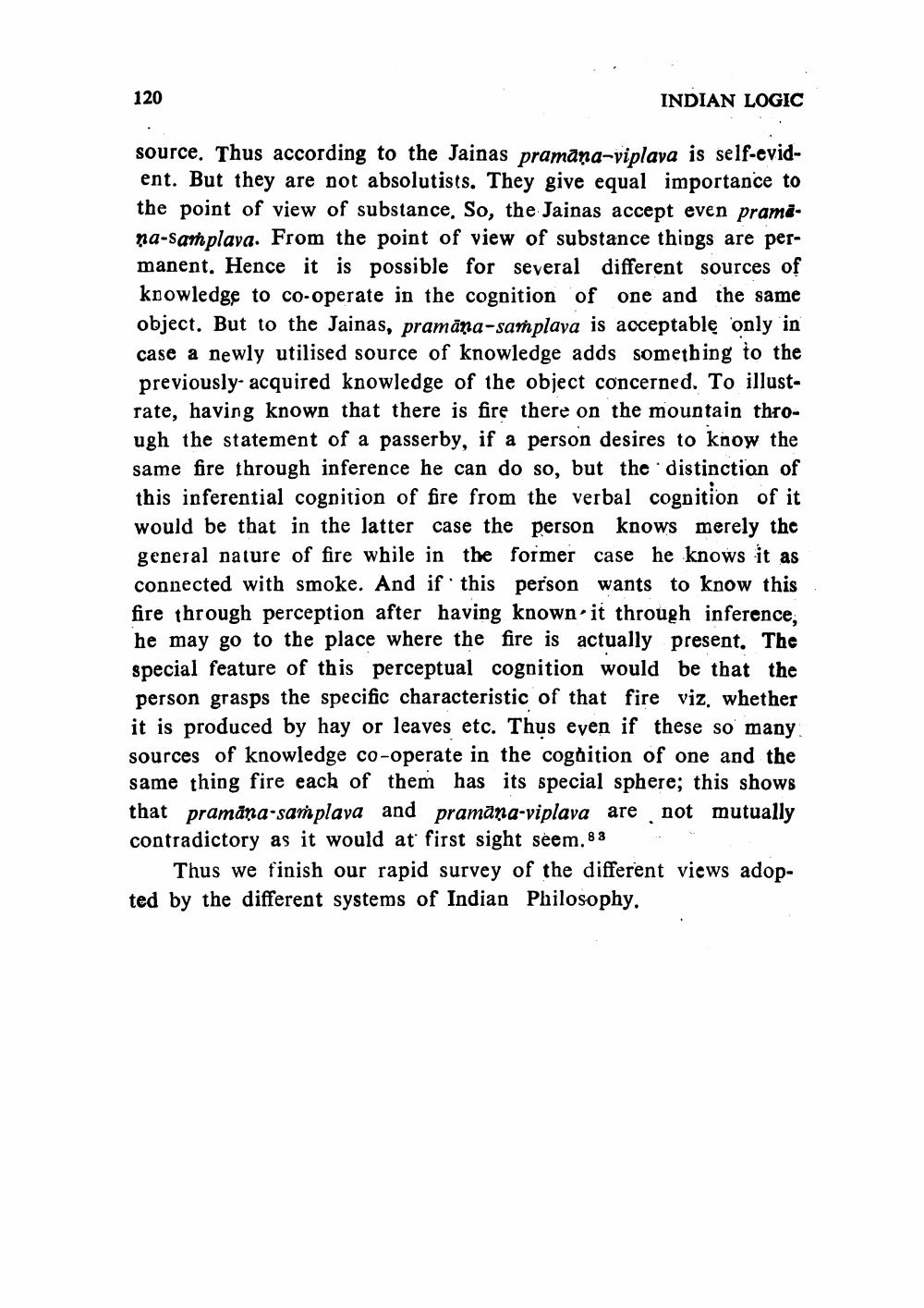________________
120
INDIAN LOGIC
source. Thus according to the Jainas pramāna-viplava is self-evident. But they are not absolutists. They give equal importance to the point of view of substance. So, the Jainas accept even pramana-Samh plava. From the point of view of substance things are permanent. Hence it is possible for several different sources of knowledge to co-operate in the cognition of one and the same object. But to the Jainas, pramāna-samplaya is acceptable only in case a newly utilised source of knowledge adds something to the previously acquired knowledge of the object concerned. To illustrate, having known that there is fire there on the mountain through the statement of a passerby, if a person desires to know the same fire through inference he can do so, but the distinction of this inferential cognition of fire from the verbal cognition of it would be that in the latter case the person knows merely the general nature of fire while in the former case he knows it as connected with smoke. And if this person wants to know this fire through perception after having known it through inference, he may go to the place where the fire is actually present. The special feature of this perceptual cognition would be that the person grasps the specific characteristic of that fire viz, whether it is produced by hay or leaves etc. Thus even if these so many sources of knowledge co-operate in the coghition of one and the same thing fire each of them has its special sphere; this shows that pramāna-samplava and pramāna-viplava are not mutually contradictory as it would at first sight seem.83
Thus we finish our rapid survey of the different views adopted by the different systems of Indian Philosophy.




